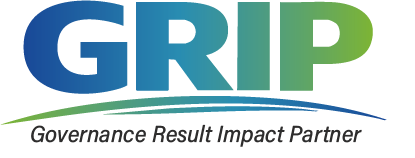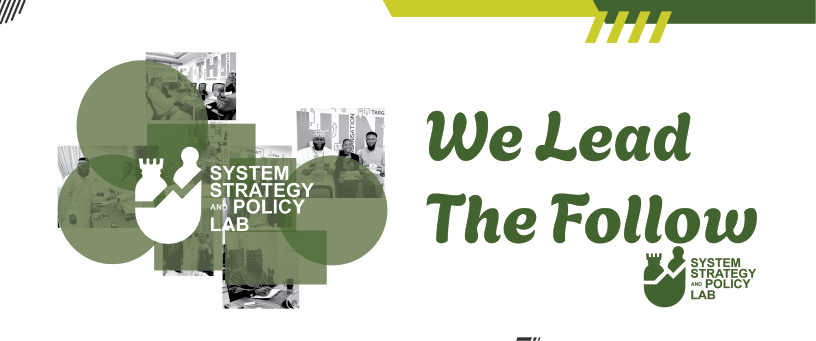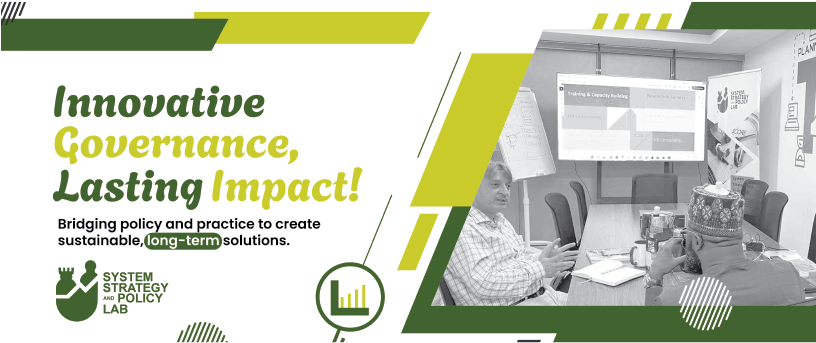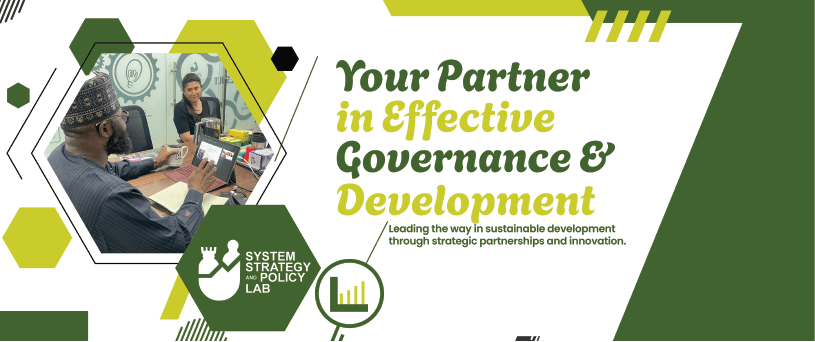
System Strategy and Policy Lab (SSPL):
Governance Results Impact Partner (GRIP) Initiative.
Introduction:
The Governance Results Impact Partner (GRIP) is an innovative initiative by the System Strategy and Policy Lab (SSPL) designed to support states and institutions in Nigeria in achieving sustainable development goals through improved governance, strategic planning, and effective policy implementation. GRIP focuses on building robust systems that can withstand socio-economic challenges and drive impactful, long-term results.
Key Features of GRIP:
Data-Driven Decision Making:
GRIP harnesses the power of data analytics to inform policy decisions and strategic planning. By collecting and analyzing relevant data, GRIP helps states and institutions identify critical areas of need, allocate resources efficiently, and monitor progress effectively.
The initiative provides tools and methodologies for real-time data collection and analysis, ensuring that decisions are based on accurate and up-to-date information.
Capacity Building:
GRIP focuses on enhancing the skills and capabilities of government officials and institutional leaders. Through tailored training programs and workshops, GRIP equips stakeholders with the knowledge and tools needed to implement effective governance practices.
Capacity building includes training on budget planning, financial management, project monitoring, and evaluation, as well as best practices in public administration and service delivery.
Strategic Planning and Implementation:
GRIP supports states and institutions in developing comprehensive strategic plans that align with national and international development goals. This includes setting clear objectives, identifying key performance indicators, and outlining actionable steps to achieve desired outcomes.
The initiative ensures that these strategic plans are not only well-crafted but also effectively implemented through continuous support and monitoring.
Policy Formulation and Reform:
GRIP assists in the formulation and reform of policies to create a conducive environment for sustainable development. This involves conducting policy reviews, stakeholder consultations, and impact assessments to ensure that policies are inclusive, equitable, and effective.
The initiative promotes evidence-based policy-making, leveraging data insights and global best practices to inform policy development.
Financial Planning and Budgeting:
One of the core components of GRIP is enhancing financial planning and budgeting processes within states and institutions. GRIP provides guidance on efficient budget allocation, expenditure tracking, and financial accountability to ensure that resources are used effectively.
The initiative also supports the development of financial models and frameworks that promote transparency and fiscal responsibility.
Monitoring and Evaluation (M&E):
GRIP establishes robust monitoring and evaluation systems to track the progress of governance initiatives and measure their impact. This involves setting up M&E frameworks, defining key performance indicators, and conducting regular assessments to ensure that objectives are being met.
The initiative provides feedback mechanisms to continuously improve governance practices and adapt strategies based on M&E findings.
Strengthening Coordination:
GRIP enhances coordination among various stakeholders, including government agencies, civil society organizations, and development partners. This ensures that efforts are harmonized and resources are maximized, leading to more cohesive and effective governance interventions.
The initiative promotes collaboration and partnership, facilitating dialogue and cooperation to address complex development challenges.
Benefits of GRIP:
⁃ Enhanced Governance: By improving decision-making processes and building capacity, GRIP helps states and institutions implement effective governance practices that lead to sustainable development.
⁃ Increased Efficiency:The use of data analytics and strategic planning ensures that resources are allocated efficiently and efforts are focused on high-impact areas.
⁃ Greater Accountability: GRIP promotes transparency and accountability in financial management and policy implementation, fostering trust among stakeholders and the public.
⁃ Strengthened Coordination: By fostering collaboration and coordination among stakeholders, GRIP ensures that governance interventions are cohesive and resources are used effectively.
⁃ Sustainable Development: By aligning with national and international development goals, GRIP contributes to the long-term stability and growth of states and institutions in Nigeria.
Do you have a Governance Evidence to Report?



